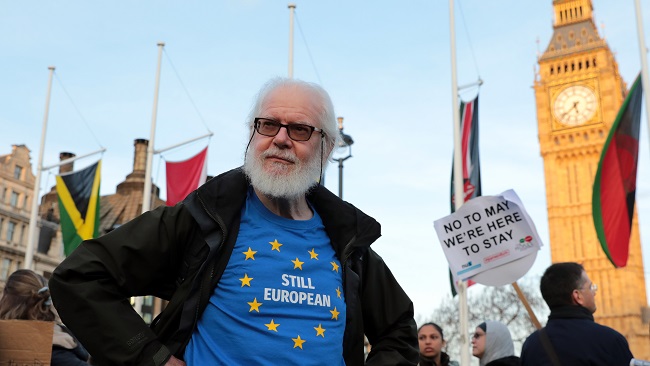
Although Great Britain’s decision to leave the European Union was thrown into political turmoil following a High Court ruling last November, the so-called “Brexit” will move forward next week. That’s because Prime Minister Theresa May — who announced her support for the decision upon taking office — will officially notify the European Union of the United Kingdom’s decision to leave on Wednesday, March 29th. Such will confirm May’s October pronouncement that she would begin the process by March.
According to BBC News, 10 Downing Street officially announced May’s intention to write and submit a formal letter to the EU announcing her invoking of Article 50. The legal process therein prevents formal negotiations for the proposed exit until after the British government officially informs the EU of its intent. Once May and her administration do this next week, however, the United Kingdom will have up to two years to settle any and all details of the Brexit process before the separation is complete.
“Last June, the people of the UK made the historic decision to leave the EU. Next Wednesday, the government will deliver on that decision and formally start the process by triggering Article 50,” British MP and Brexit Secretary David Davis said in a statement. “The government is clear in its aims: a deal that works for every nation and region of the UK and indeed for all of Europe — a new, positive partnership between the UK and our friends and allies in the European Union.”
In response to Davis, European Council President Donald Tusk tweeted he would “present the draft #Brexit guidelines to the EU27 Member States” within 48 hours of receiving May’s formal letter.
Within 48 hours of the UK triggering Article 50, I will present the draft #Brexit guidelines to the EU27 Member States.
— Charles Michel (@eucopresident) March 20, 2017
Despite these formalities, however, tensions between Great Britain and the European Union since the initial Brexit vote last June have remained high. Last week Tusk noted the EU would not be “intimidated” by the British government’s supposedly threatening to walk out on Brexit negotiations should the talks not go in their favor. “I want to be clear that a ‘no deal scenario’ would be bad for everyone,” he said, “but above all for the UK, because it would leave a number of issues unresolved.”
